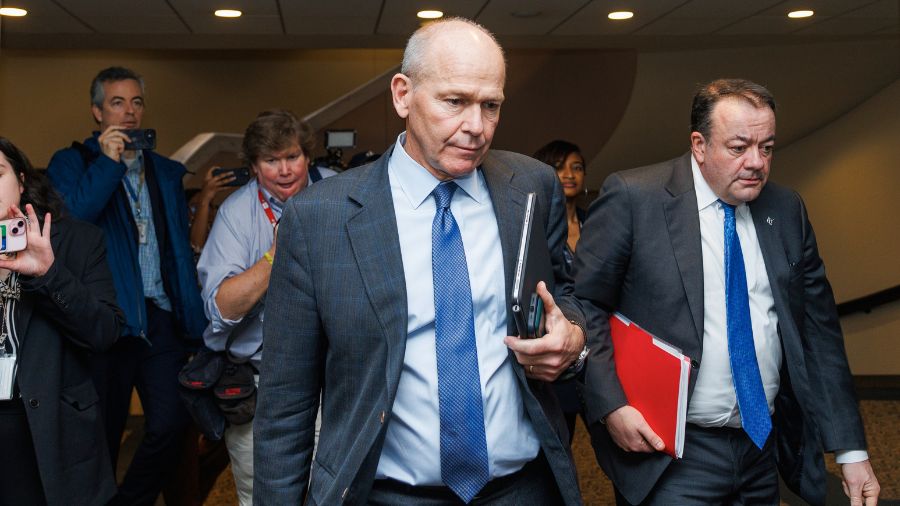Third Door Coalition plans to end chronic homelessness in King County in 5 years
May 12, 2019, 7:36 AM | Updated: May 13, 2019, 6:43 am

Chad Mackay is the co-founder of Third Door Coalition, which is working on a solution to chronic homelessness in Seattle. (Photo courtesy Fire & Vine Hospitality)
(Photo courtesy Fire & Vine Hospitality)
Local business owner Chad Mackay came home to his kids playing “homeless camp” in the basement one day, and knew things had to change. It hit him that he couldn’t let this be the new normal for his kids growing up in a city he loves.
RELATED: Eastside’s Congregations for the Homeless gets boost from developer
Luckily, he heard Sara Rankin, an associate professor at Seattle University School of Law, speak about homelessness at a Visit Seattle board meeting. She explained to Mackay, head of Fire & Vine Hospitality, and other business leaders about her research with the Homeless Rights Advocacy Project, and why she’s optimistic about a solution.
Rankin described the current system as broken, suggesting that coordinating with businesses, researchers, and service providers could help reset the conversation, and finally solve the region’s chronic homeless crisis.
“We got together and started talking about how that would work,” Mackay said.
That was in May of 2018. By September, they had formed the Third Door Coalition and were already holding their first meetings.
The group was intentionally kept small in size, but packs a powerful punch, among the likes of David Blanford; Vice President of Public Affairs at Visit Seattle; Noah Fay, Director of Housing Programs with Downtown Emergency Service Center; Matt Galvin, co-owner of Pagliacci Pizza and Marina Bakery; Paul Lambros, CEO of Plymouth Housing; Howard Wright, founder of Seattle Hospitality Group; and Jeri Andrews, co-founder of The Lion’s Den Seattle.
“A third door could be opened which is around collaboration, which is around data, which is around policy, not politics, in that we’re using evidence-based solutions to figure out how to tackle chronic homelessness,” Mackay explained.
Third Door’s strategy is to provide permanent supportive housing for the chronic homelessness, which is defined as sleeping in places not suitable for humans, staying in shelters for longer than a year, and living with a disabling condition such as a health or emotional condition. The coalition says people experiencing chronic homelessness only make up 29 percent of the entire homeless population, but they’re the most visible, the most costly, the most vulnerable, and often the most polarizing.
While critics argue housing won’t make a difference, Mackay says it’s a cheaper and more effective solution than how local government is currently managing the issue. The coalition plans to unveil its official plan this summer.
“To solve chronic homelessness, you have to house people, so that you can get them in a state when you can actually provide them services,” Mackay said. “The uptake on supportive services in supportive housing is by far larger than the uptake of people that are chronically homeless and they’re offered services on the street.”
As a business owner and Seattle taxpayer, Mackay firmly believes that their plan is aggressive enough to make a major impact on city streets within the next five years. And at a much cheaper price tag.
Managing versus solving homelessness
He recommends that anyone still skeptical read a 2006 Malcolm Gladwell article for The New Yorker, titled “Million-Dollar Murray,” about a homeless man who died on Reno’s streets. It concludes that the resources dedicated to Murray’s well-being cost the city a million dollars.
Mackay estimates it costs Seattle and King County $50,000 to $80,000 a year in emergency services to keep one individual on the streets. It would only cost about $20,000 a year for supportive housing under Third Door Coalition’s plan.
“It’s a waste of resources to send them to drug rehab, try to get them into mental health treatment in the terms of outpatient treatment — when they go back to living in a pretty deteriorated situation … If you put them in housing and wrap them with those services, they start to rebuild their lives,” Mackay said. “Ultimately, it will save taxpayers money.”
How to fix chronic homelessness
How exactly they accomplish that will be detailed in the coalition’s plan. But in a nutshell, Mackay said they’re working on innovating funding, different ways to partner, new strategies for cutting down on excessive construction costs, enticing private dollars with public matching, and delivering a faster timeline for results.
Mackay said that there are some tactics that are already queued up and wouldn’t require too much involvement to implement. Other tactics are more long-term, and require work with the county, city, and state Legislature.
“There are some innovative construction techniques and the ability to drive down the cost per key – cost per unit – that we want to continue to push forward and get some prototypes done in a relatively short fashion,” he said.
Some of that is new construction and some of it is existing housing stock. They’ve been working with real estate agents to determine the true cost.
Impact of local businesses
With help from the private sector, Mackay also expects they’ll get more accurate data about the migration of people experiencing homelessness, and who they really are.
“I don’t think people believe the reporting numbers that are out there,” he said. “So let’s have business be part of developing that data analysis and reporting mechanism to test, monitor, and benchmark the actual results.”
If businesses put money in, they should get something in return, and Mackay says that’s a reduction in chronic homelessness and increase in street civility.
“The companies are not the enemy,” Mackay said. “The companies and employers in this town, in this region, are part of the solution.”
Mackay said that the city of Seattle knows his group is working toward a solution. He believes Third Door is the only group working on chronic homelessness with the expectation of a major impact. “And we’re further down the path than the current efforts are.”
Mackay says the greatest way to support Third Door Coalition’s efforts is to understand what chronic homelessness truly means, and to also realize that there are solutions to move the needle.
“And it’ll ultimately reduce the cost and give the city back to us.”
MyNorthwest is spotlighting local businesses that are making a difference in the lives of people who are experiencing homelessness. If you know of a business that you think is creating solutions, please email us at feedback@mynorthwest.com with details.













